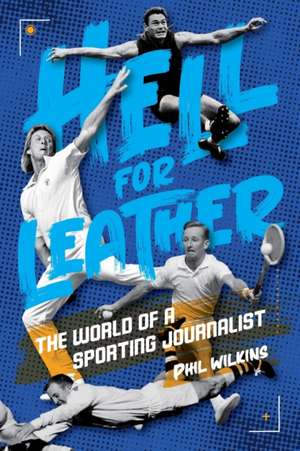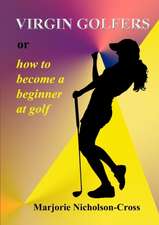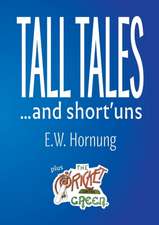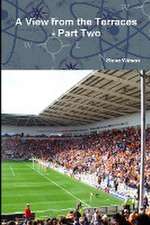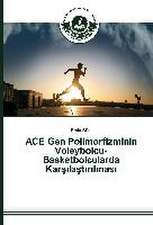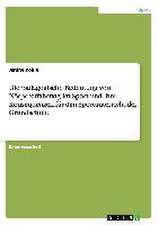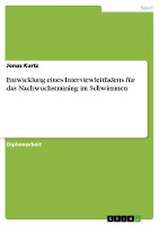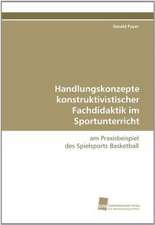Hell for Leather: The World of a Sporting Journalist
Autor Phil Wilkinsen Limba Engleză Paperback – 26 apr 2023
Preț: 208.14 lei
Nou
39.83€ • 41.58$ • 32.96£
Carte disponibilă
Livrare economică 14-28 martie
Specificații
ISBN-10: 1925914577
Pagini: 468
Dimensiuni: 152 x 229 x 26 mm
Greutate: 0.67 kg
Editura: Touchladybirdlucky Studios
Notă biografică
Born in Broken Hill in 1939, Phil Wilkins was educated in remote Waratah (Tasmania), Broken Hill, Drake and Lismore, gaining his tertiary degree in the Broadway gutters and back streets of Sydney as a newspaper cadet police roundsman in 1958 with The Sydney Morning Herald.Ever the leg-spinning cricket devotee and rugby league player, placing sport before academic honours, becoming a graded journalist after three years as a cadet, he temporarily abandoned the newspaper game to spend two years labouring and playing rugby union in New Zealand. Recalled to the Herald, he became the Australian Rules reporter and ultimately its chief cricket writer in 1967.This highly regarded sports journalist spent 45 years with the Herald, the Sun-Herald and The Australian newspapers as well as becoming the Australian correspondent for the Wisden Cricket Almanack and Cricketer magazine, before retirement in 2003, receiving the Walkley Award for outstanding journalism in 2004. He continues as the rugby union writer for the Great Lakes Advocate in Forster as well as the Manning River Times of Taree.
Descriere
From the 1960s until the turn of the century, Phil Wilkins was chief cricket writer in turn for The Sydney Morning Herald and The Sun-Herald, then The Australian and The Sun newspapers. In this autobiography, he remembers great players watched and interviewed, historic events, reviving memories of cricketers, rugby league, rugby union and soccer players, of boxers and tennis titleholders.
Among his cavalcade of champions are Rod Laver, Ian and Greg Chappell, Dennis Lillee and Jeff Thomson, Bob Simpson, Bill Lawry and Shane Warne; England's Freddie Trueman, Ian Botham, Colin Cowdrey and Geoffrey Boycott, the West Indies' Vivian Richards, Gordon Greenidge and Desmond Haynes, the Pakistanis, Javed Miandad and Imran Khan, the Indians, Bishan Singh Bedi and Sunil Gavaskar, and earlier Australian immortals, Keith Miller, Ray Lindwall and Norman O'Neill; in rugby league, Johnny Raper, Ron Coote, Reg Gasnier, Harry Wells and Bobby Fulton; in rugby union, Ray Price and Ken Catchpole, Ewen McKenzie and Phil Kearns, Tim Horan and Jason Little, David Campese and Nick Farr-Jones, all match-winners and game-breakers, the mightiest of performers.
But the first of his greats was Melbourne's Australian Rules captain and later coach, the splendid Ron Barassi. Above all players, Wilkins praises his littlest hero, the fearless nine-year-old Guyanese boy, Dominic, who saved his life by throwing himself at a pipe-wielding thug at the height of a riot in the World Series Cricket match in Georgetown on the "Forgotten tour" of 1979, when the Australians drew the SuperTest series with Clive Lloyd's world champion West Indians.
